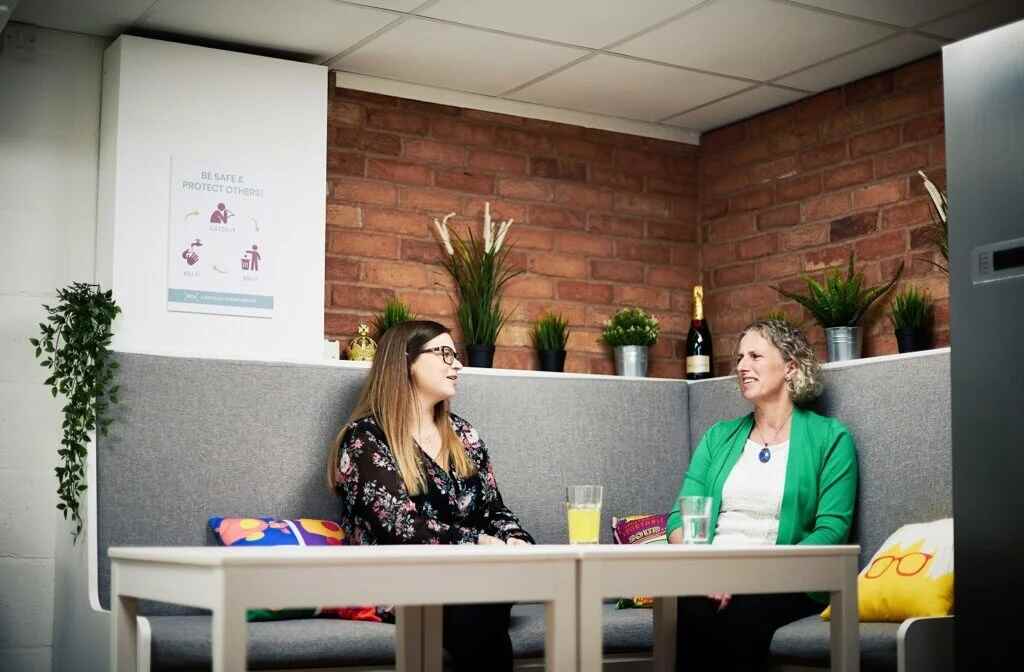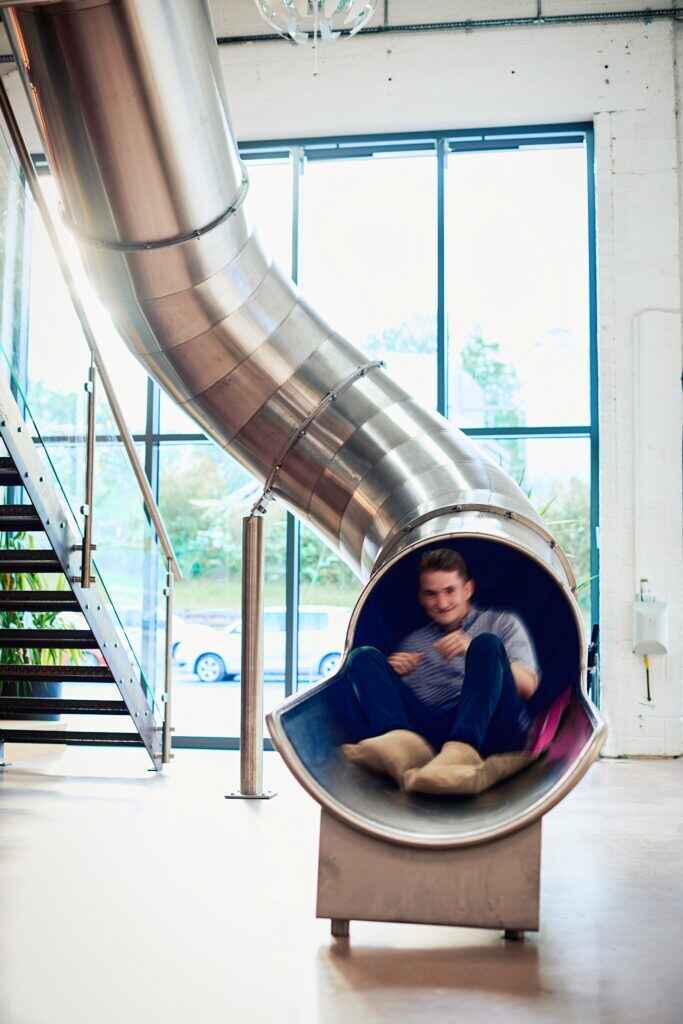Do you think your company is a place where people feel safe and can talk to a manager about wellbeing and mental health at work? Not sure? In the modern world, this important topic becomes a core element of most HR strategies.
We have listed our top 10 tips on how to boost wellbeing at work. And, here is why.
We spend most of the week at work. For many of us, the key to staying motivated and enthusiastic about work is to be given the support we need from the team and managers.
Don’t we all just want to feel like we are valued and met with respect? To have a healthy, high-functioning, relational and psychologically safe workplace. And of course, we need the company to care about our mental health.
1. Raising awareness of mental health and wellbeing at work
Do you talk enough about your mental health? Way too often we are too scared of talking about our mental health to managers. However, by raising awareness of mental health and wellbeing the company will as a result have much happier teams.
Why not give employees some information on how mental health is managed and what support is available as part of induction.

2. Provide healthy snacks
A healthy diet has so many benefits, it can protect you against horrible chronic diseases, such as heart disease, diabetes and cancer. We all need to eat a variety of foods and make sure we consume less salt, sugars and saturated fat etc. It is essential for a healthy diet – but also for your mental health.
Having a healthy and well-balanced diet can help us think clearly and to have more energy throughout the day at work, and it can also help you with concentration and attention span.
3. Make lunch mandatory
This may have happened to many of you, especially in hospitality. You know those stressful days when the company is understaffed, there is no one to cover, and there you are not having a proper break after a long 10-hour shift.
Prolonged periods without lunch breaks can affect people’s mental health and lead to employees getting signed off due to burnout, or even depression. No one wins here, right? By making lunch mandatory, both the employer and employee will win in the long run.
4. Weekly/monthly 1:1 meetings
1:1 meetings with employees regularly will help people talk more about well-being at work, we all know that conversations about mental health have the power to change lives. Everyone goes through rough times now and then, but we don’t always show it, let’s open up more!

5. Sick days & time off for people with health issues
As mentioned above, burnout is a real thing. Many factors can contribute to burnout. However, a big factor is that many people think they need to go through their struggles alone – without taking a break from work.
A good employer should come up with a well-being strategy to help employees with health issues – be there to listen and ask the employee to take time off to rest. At Situ, for example, everyone is entitled to two paid ‘Reset days’ a year that allow our team members to take some time off, rest, unwind and look after their mental wellbeing.
6. Recognition, recognition, recognition
When you have completed a task and performed very well – it’s so nice to get a “well done, you’ve done a great job!” praise.
Do you receive negative “feedback” and never anything positive? All kind of feedback is important, but we should not forget to focus on recognising all the good work that the team do.
There are plenty of different ways to show employees recognition, here are some of our ideas at Situ:
- Career progression
- Shoutout notes to give out within the team
- Congratulation emails
- Treating the team to lunches
- Pay reviews or bonuses
- Rewards and gifts
7. Personal & professional growth to improve wellbeing at work
As an employer, it’s great to take time to talk to employees about personal and professional growth and to make a plan on how the company can help to reach these goals. This could be to offer training courses, free or paid for by the company – this really shows that the manager cares and want everyone to succeed at all levels.
At Situ, everyone is entitled to two paid training days a year, and we have career progression plans that team members work on with their managers to make sure their roles continue to be rewarding and challenging at all times.

8. Plan for regular team-building activities
We all love to have some fun outside the workplace! Try some different activities to book instead of the same old lunches, dinners and drinks out. Here are some of our favourite ones.
- Escape rooms
- Bowling
- Murder mystery
- Wine/beer tasting
- Scavenger hunt
9. Implement flexible work hours
Flexible work hours could help many parents with childcare, and give more time to people to spend on their hobbies, family, and friends.
What about hybrid work? This helps the workplace to be more sustainable as it saves people from driving to work every day. It gives people a better work-life balance, reduces exposure to illness, and saves money and time. That’s what we did here at Situ – we tailed hybrid work last year and everyone seems to love it!
10. Environment for wellbeing at work
Noise, levels, space, temperature, and light can affect staff wellbeing. Managers should talk to the team about how to improve the work environment and make it happen (if suitable). Perhaps they need space dividers, quiet spaces, comfortable chairs, or maybe even an office slide!

Good work-life balance is very important for all of us. In the post-pandemic work, where employers around the world become more flexible and focused on the team’s wellbeing. It is always good to start the conversation and look at all different ways to boost your company’s employee wellbeing strategy. What do you think? How does your company show care and support? Let us know.


